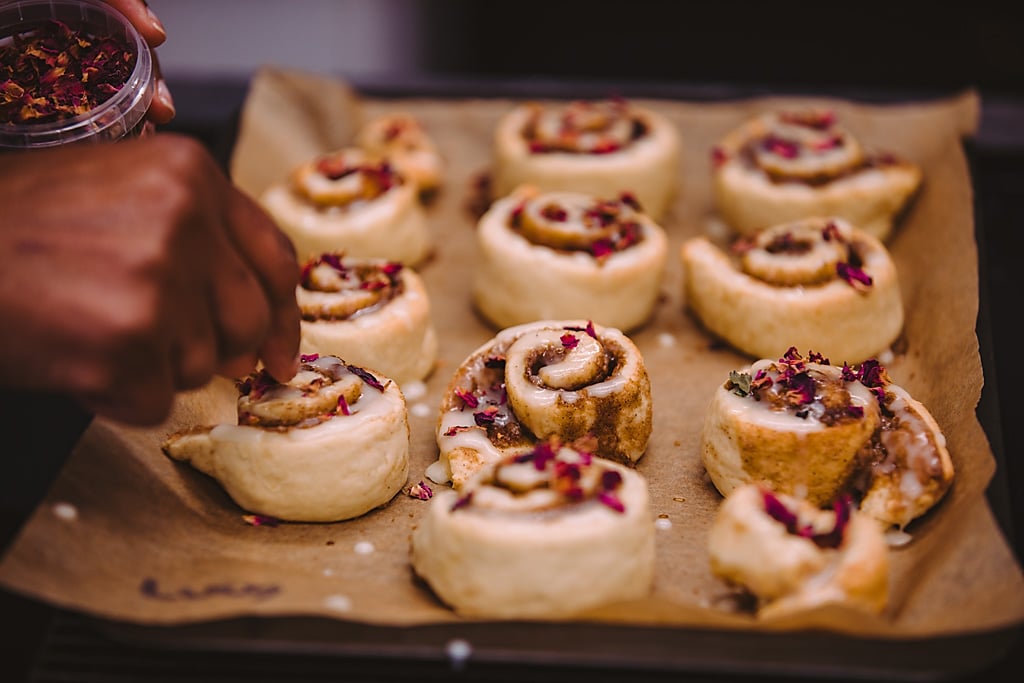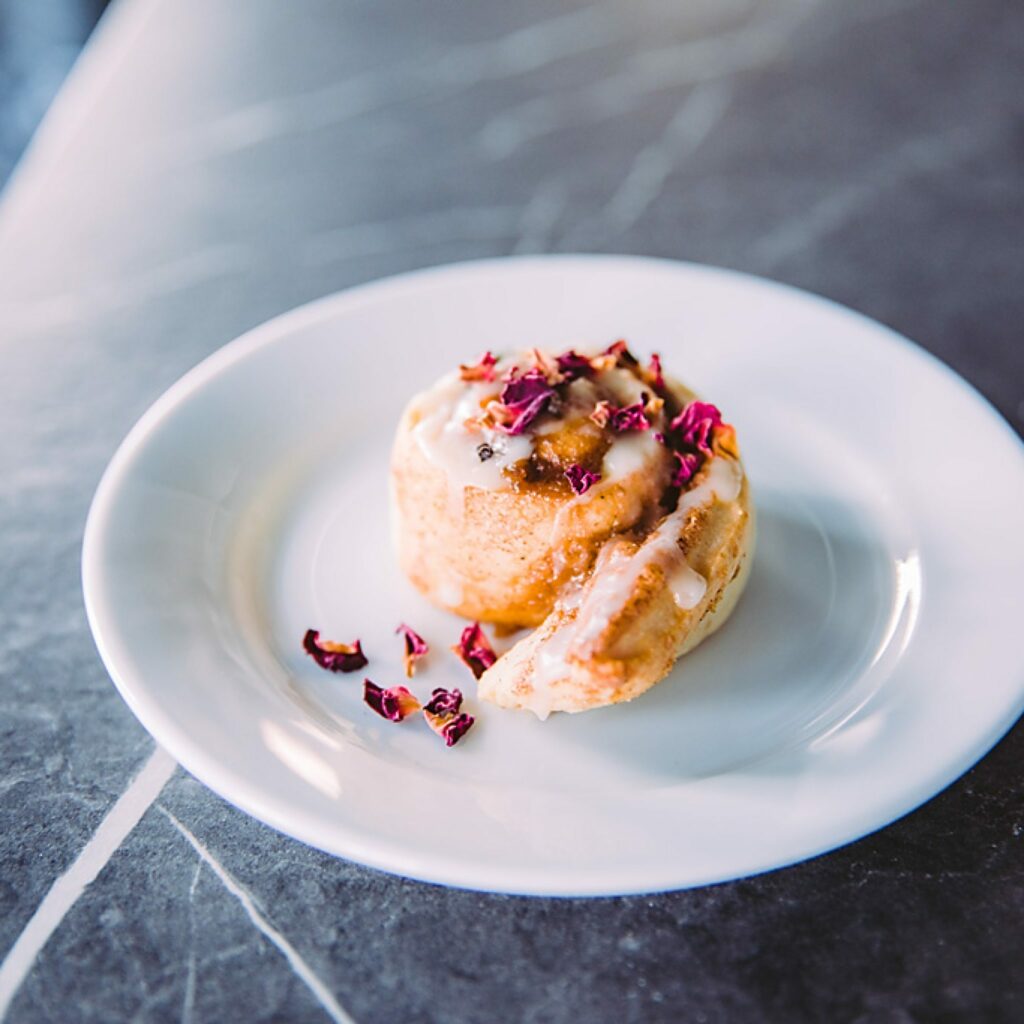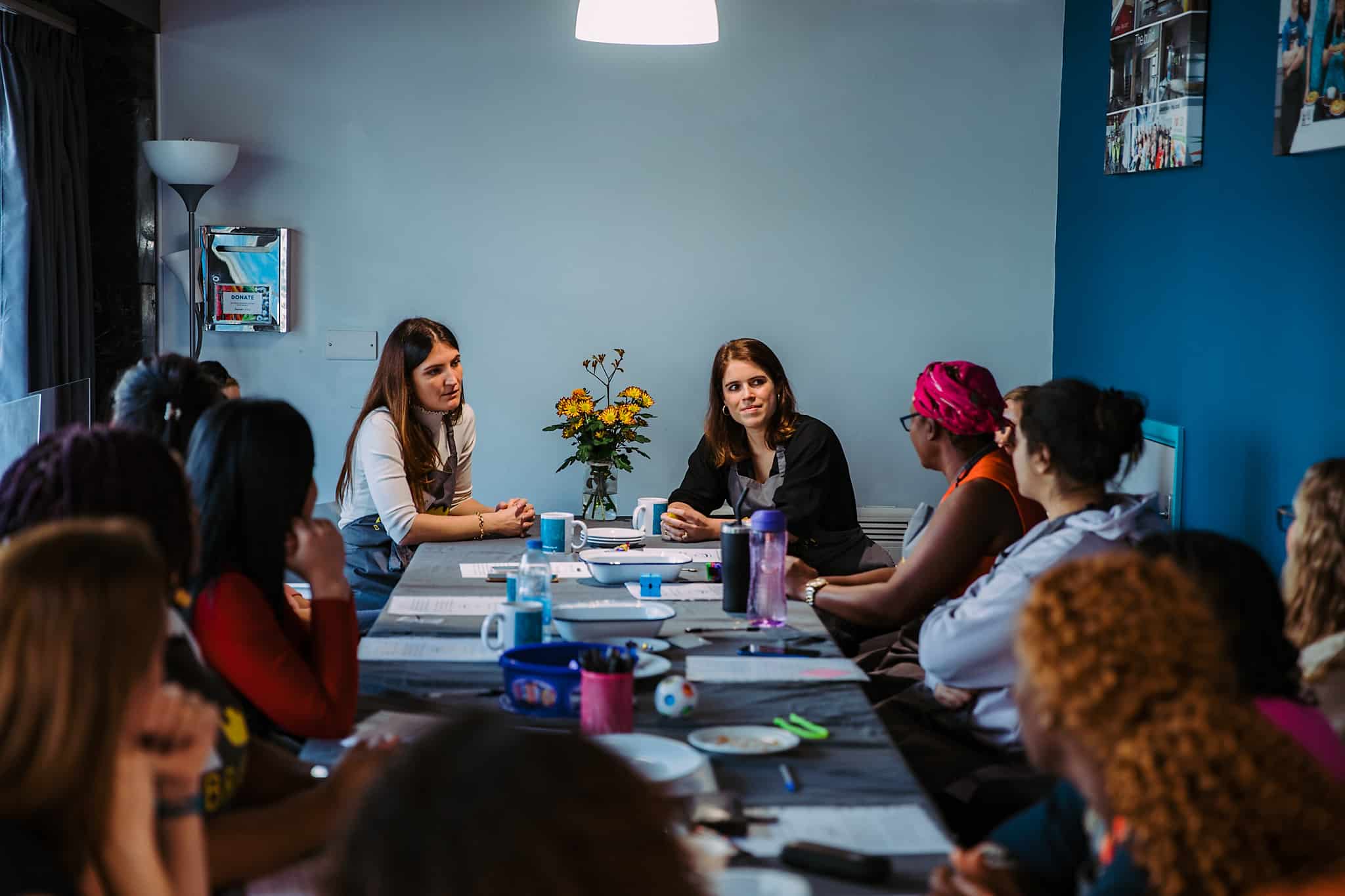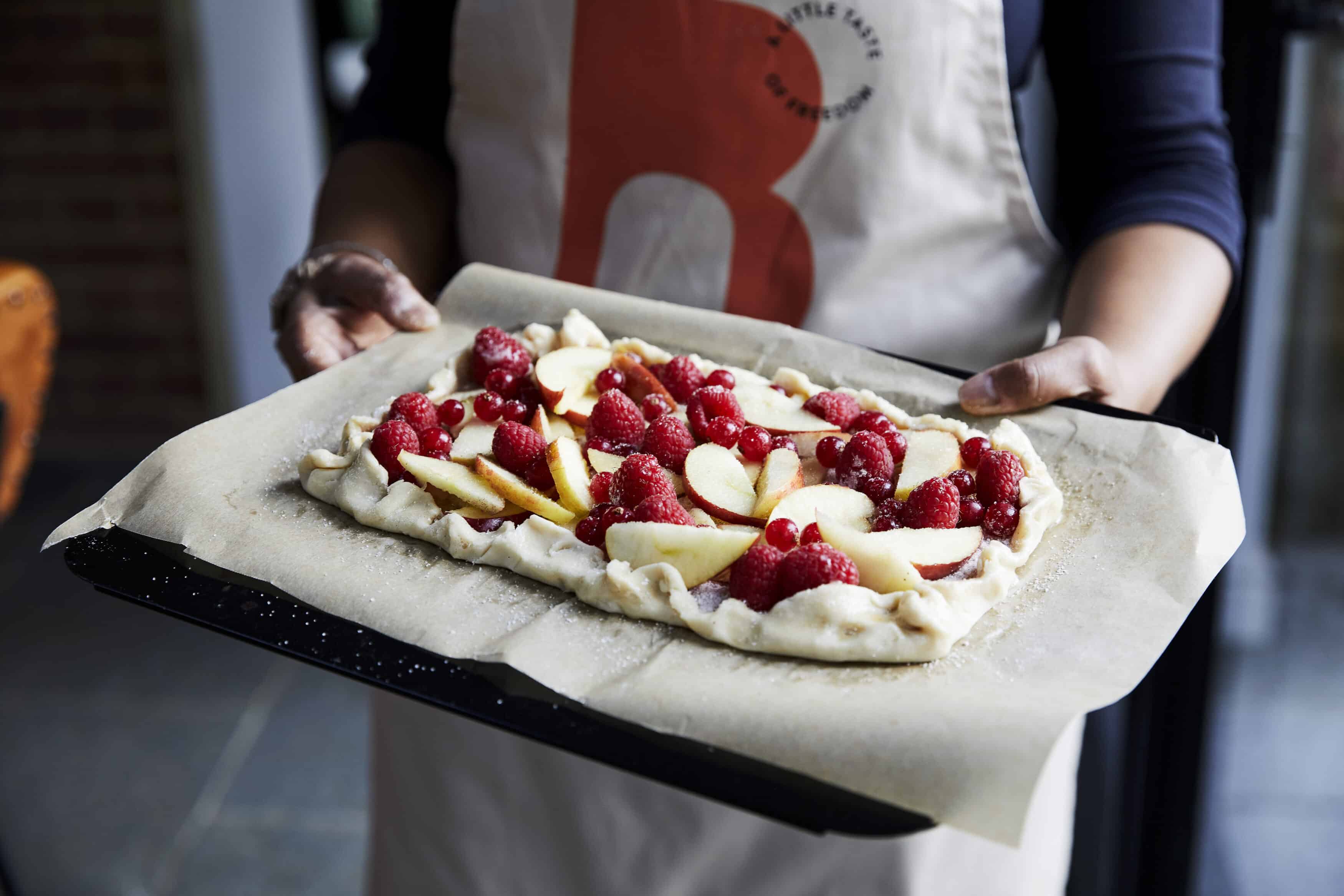
The benefits of baking for female survivors
For me, working in the kitchen and using my hands to produce something delicious and nourishing is a fantastic form of self-care for those I meet, those I love, and for me too! It’s a belief that has been reinforced through my work at Bramber Bakehouse, teaching baking to survivors of human trafficking as a means for employability and wellbeing. Since starting my role, I’ve taught 14 students – and seeing their personal growth over the course has been incredible. In this post, I’ll explain three reasons why baking benefits the women attending our course.
Fostering community
I believe the power of food and gathering to share it creates and fosters community. In fact, research on community kitchen programmes have shown that cooking groups help encourage socialisation and improve social isolation.
There is also some evidence that socialisation benefits extend beyond cooking interventions. In a study in Australia, many participants continued to report improved social interactions at home as they continued to prepare meals as household teams even 6 months later. It is for this reason that we aim to teach recipes that can be made at home with minimal equipment and affordable ingredients, so our students can continue to practice and be creative within their own communities.
Increased self-esteem
In 2004, researchers reported that participation in baking sessions led to improved self-esteem, due to factors such as increased concentration, coordination, and confidence. They also reported that producing a product one could keep or give away to others as being beneficial and rewarding –something I am sure many of us can relate to!
With varying levels of confidence, we’ve created a baking programme that comfortably progresses from beginner (with triple chocolate brownies) to advanced (with technical enriched doughs).’ Throughout the programme we teach our students the theory, giving explanations on how recipes work, enabling them the confidence to experiment and continue their baking journey after the programme is completed.
Improving mental health
As mentioned before, working in the kitchen is a familiar task of daily living, using physical engagement and concentration. These actions allow evaluation and development, both physically and cognitively, which are the basis of occupational and rehabilitation therapy. Research observed that cooking interventions provide a ‘reminiscence therapy experience’, a type of group therapy that encourages recalling pleasurable memories.
Group interaction has been used as a mode of therapy for more than 100 years, and we make sure to create a calm and safe space where students can converse and bond with others of similar lived experiences whilst focussing on something creative and fun.
Increasing trust
Our classes involve both baking and the social exchange of food – which creates a space of safety and patience for our students to practise communication with one another.
A study in 2004 reported that community kitchen groups led to a sense of belonging, a sharing of common interests, and an opportunity to enjoy the company of others. Our cohorts have experienced significant trauma before entering our programme and often arrive with little trust in those they do not know. But in my time working at Bramber Bakehouse I have noticed that with a growing sense of community in the group comes an increase in faith and trust in one another.



Keep in touch
We all need some good news from time to time. Receive mouthwatering recipes, hear inspirational stories and the latest Bramber news.



